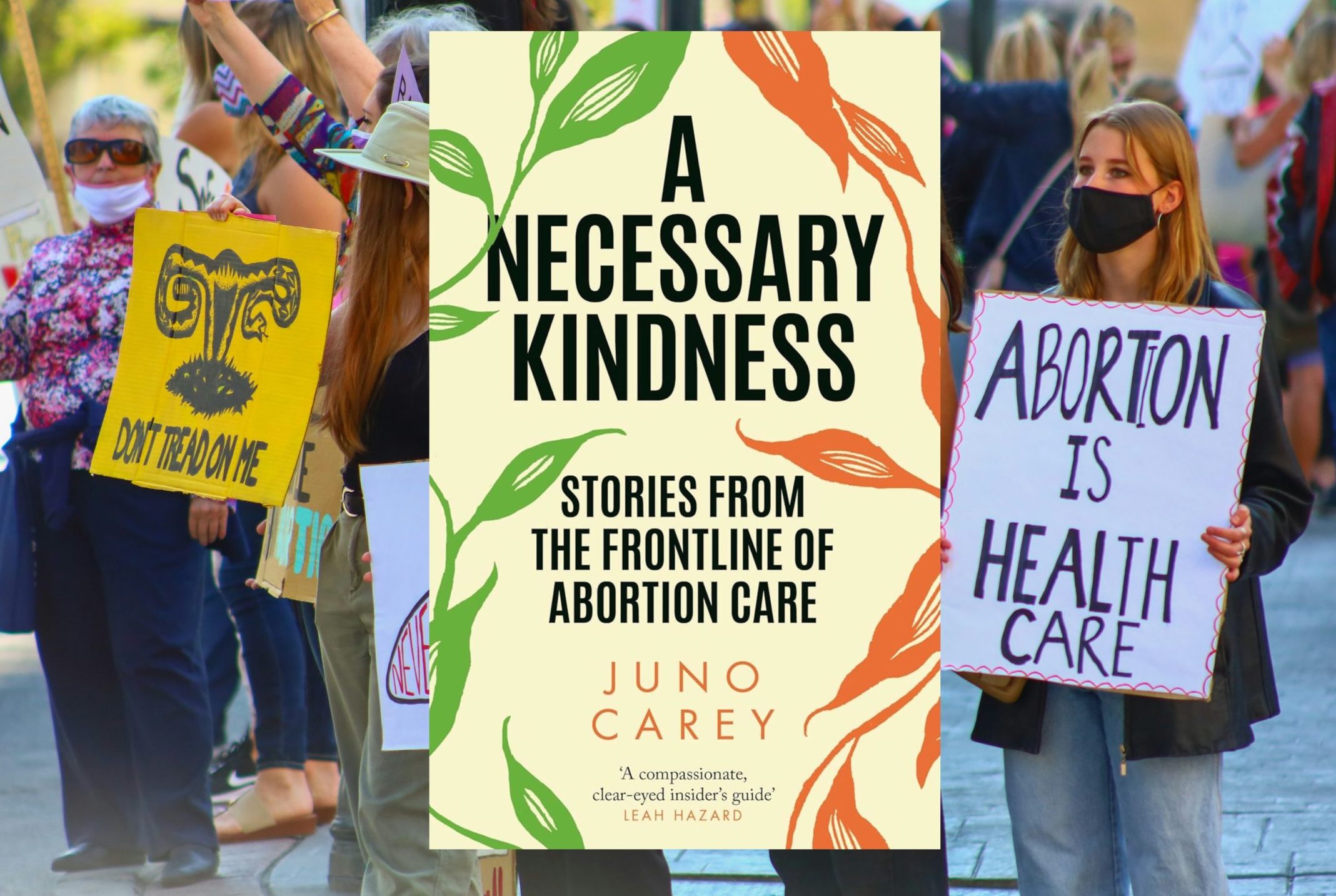
The Lancet recently published a series on the menopause. GPs are consulting with large numbers of women around this time of life and will no doubt welcome a major medical journal addressing an area of rising need. The evidence discussed had already largely been reviewed in various guidance and summaries already but the commentary attempted to highlight the risks of overmedicalisation of menopause. The editorials described what the authors felt was fearmongering through “horror stories” and even a diminution of women who chose not to, or can’t take HRT, where some feel there is a suggestion that women post-menopause might be “lacking” in some way. On the other hand, GPs are seeing women seeking help in large numbers in primary care, raising their voices on social media, in medical education, within women’s health services and documentaries on the topic. In these fora, women describe feeling unsupported and at times dismissed when they seek help for what they feel are significant symptoms. The discussions are becoming somewhat polarised; unhelpful to women and the clinicians trying to support them.
Overall, the papers are supportive of how most GPs are likely to understand current practice. We listen to women, consider all possible diagnoses and discuss the advantages and disadvantages of HRT compared to other options. If women want HRT, we preferentially use body-identical HRT -thought to have low or no clot or cardiovascular risk and potentially lower breast cancer risk. We then use a person-centered, shared decision making approach highlighting uncertainties and asking women “what matters most to you?”.
We listen to women, consider all possible diagnoses and discuss the advantages and disadvantages of HRT compared to other options.
The breast and endometrial cancer risk remains as we’ve previously understood – significant enough to discuss carefully, but not so significant that most women without these cancers can chose to trial HRT and continue it, if they feel it is beneficial. We are aware that these cancer risks are likely to be lower than the risks associated with overweight and obesity or smoking and excess alcohol consumption for example. The papers highlighted that reduced colon cancer risk is associated with HRT use – a reassurance for women.1 In my clinical experience, women who start HRT often find it easier to give up smoking, excess alcohol and prepare healthier food as they report improved sleep, energy, mood and motivation. In this end, could it be possible that by making these lifestyle changes, these women may have reduced their cancer risks attributable to lifestyle factors?
An ”empowerment model” is suggested in the series, where-by GPs should provide evidence-based information about what to expect.2 However, the authors of this paper explain that there is “no universal menopause syndrome,” with one consensus statement in 2005 suggesting many women have few or no symptoms but many other studies have suggested other symptoms are more common and the quality of evidence is poor. In practice, we should therefore continue to be cautious to listen to women’s own experiences whilst considering other causes for what can present as multiple and complex symptoms; this is a core skill in which experienced GPs excel.
The series highlighted the under-diagnosis and under-use of HRT for women with premature ovarian insufficiency (POI) and early menopause and that these are not uncommon with estimates ranging from 1-4% for POI and 7-20% for early menopause depending on the population.3 Those with POI have significant CVD risk – one of the statistics quoted a 90% increased risk of CVD for these women. All-cause mortality for these groups is also significantly raised compared to women with menopause around age 50. A GP practice with a list size around 10,000 patients could therefore expect to have between 400-1,200 women who would significantly benefit from HRT.
The paper on mental health during menopause concluded that there was “…no compelling evidence for a universal increased risk for depressive symptoms”. The authors did feel the evidence suggested that those with hot flushes and sleep disturbances or those experiencing stressful life events did have greater risk for mood disturbances. The data reviewed however, was of low quality, mainly observational and conclusions would have benefited from greater caveats and less certainty.4 The authors’ premise was that menopausal scoring systems including psychological symptoms may have inappropriately “raised the profile of mental health conditions” and contributed to the “belief that the menopause transition is universally associated with poor mental health”. This risks implying that women are suggestable when it comes to mental health symptoms. However, they did discuss that HRT was found to halve the risk of depression in a randomised controlled trial of women in the perimenopause and early post-menopause over a year compared to placebo.5 The authors also assumed that medicalisation of menopause symptoms with other medications such as antidepressants would be safer or more effective – the evidence for this was not explored and some would disagree.6 This is particularly the case for risks around increased suicidality and aggression,7 physical side effects,8 longer term harms (particularly cardiovascular risk with TCAs) and difficulties with withdrawal with SSRIs in particular.9
This risks implying that women are suggestable when it comes to mental health symptoms.
The series’ editorial resulted in high profile social media debates by women going through the menopause. For example, some commentators substituted male issues, which, whilst not exactly mirroring the menopause, make for uncomfortable reading;
“Men with erectile dysfunction can be strong, healthy and happy – as highlighted by the selection of inspiration images of older men that accompany the series. Age-related erectile dysfunction can also be a time for men to reassess their identities, to embrace this next phase in their lives and the freedom from unwanted erection and desire, and to challenge negative perceptions of older men, which are prevalent in some societies. We need to send realistic, balanced message to men and to society; testosterone decline and erectile dysfunction does not herald the start of a period of decay and decline but is a developmental life stage that can be negotiated successfully with access to evidence-based information as well as appropriate social and medical support. Men deserve nothing less”
Social media rarely allows for nuanced discussions around complexity and uncertainty; the editorial however suggested it was addressing these issues. However, more detail on overall women’s health, shared decisionmaking and how clinicians might practically have personalised risk discussions would have been useful – notably covering the facts that women most often now die of cardiovascular disease or dementia10 and that mortality from breast cancer appears unaffected or even lower when taking HRT compared to those who don’t take it.11
The editorial failed to consider added dimensions to modern medical uncertainty. These are in addition to the biases or quality of data and how we interpret them but around how much data from previous generations still applies to today’s women. These women likely vary physiologically from previous generations – we are likely to have had fewer children and later, taken synthetic hormone contraceptives for longer, breast fed less, have been exposed to repeated rounds of COVID-19, have more fragile (dysbiotic) microbiomes, have been exposed to more atmospheric pollutants, endocrine disrupting chemicals and microplastics,12 have been brought up on ultra-processed foods and are far more isolated. This rapidly deteriorating environment adds further complexity that is likely to be significant; sex steroids are known to be immune modulating.13 Research suggests that our current environment is highly stimulating to our immune system and results in chronic low grade dysregulated and harmful inflammation.14 Could today’s women therefore be experiencing the menopause transition differently and this loss of immunomodulating steroids be causing more difficult symptoms? Some evidence from a longitudinal Swedish study suggests that at least hot flushes are twice as likely to be reported by women today compared to women in previous generations.15 Certainly, dismissing women’s experiences (whether celebrities or not) as “horror stories”, as described in the editorial, has been interpreted by some as medical gaslighting.
Shining a spotlight on the lack of research and consensus around the menopause, the underdiagnosis and undertreatment of POI and premature menopause is a move in the right direction. However, we could collectively be cautious to avoid polarising suggestions; on the one hand, that those who speak up about their experiences of significant symptoms should be silenced for fear of upsetting others and on the other, that by highlighting the need for more research and support we are suggesting that women are lacking or necessarily unwell post-menopause. We still need far better data about overall quality of life during menopause as well as the safety of HRT to help support decision making; this can only be done with more research, more listening and more speaking up.
References
- Hickey M, Basu P, Sassarini J, Stegmann ME, Weiderpass E, Chilowa KN, Yip CH, Partridge AH, Brennan DJ. Managing menopause after cancer. The Lancet. 2024 Mar 1.
- Hickey M, LaCroix AZ, Doust J, Mishra GD, Sivakami M, Garlick D, Hunter MS. An empowerment model for managing menopause. The Lancet. 2024 Mar 1.
- Mishra GD, Davies MC, Hillman S, Chung HF, Roy S, Maclaran K, Hickey M. Optimising health after early menopause. The Lancet. 2024 Mar 1.
- Brown L, Hunter MS, Chen R, Crandall CJ, Gordon JL, Mishra GD, Rother V, Joffe H, Hickey M. Promoting good mental health over the menopause transition. The Lancet. 2024 Mar 1.
- Gordon JL, Rubinow DR, Eisenlohr-Moul TA, Xia K, Schmidt PJ, Girdler SS. Efficacy of transdermal estradiol and micronized progesterone in the prevention of depressive symptoms in the menopause transition: a randomized clinical trial. JAMA psychiatry. 2018 Feb 1;75(2):149-57.
- Davies J, Read J, Kruger D, Crisp N, Lamb N, Dixon M et al. Politicians, experts, and patient representatives call for the UK government to reverse the rate of antidepressant prescribing BMJ 2023; 383 :p2730 doi:10.1136/bmj.p2730
- Sharma T, Guski LS, Freund N, Gøtzsche PC. Suicidality and aggression during antidepressant treatment: systematic review and meta-analyses based on clinical study reports. bmj. 2016 Jan 27;352.
- Cascade E, Kalali AH, Kennedy SH. Real-world data on SSRI antidepressant side effects. Psychiatry (Edgmont). 2009 Feb 6;6(2):16.
- Anderson IM, Tomenson BM. Treatment discontinuation with selective serotonin reuptake inhibitors compared with tricyclic antidepressants: a meta-analysis. Bmj. 1995 Jun 3;310(6992):1433-8.
- https://www.ons.gov.uk/peoplepopulationandcommunity/healthandsocialcare/causesofdeath/articles/leadingcausesofdeathuk/2001to2018 (accessed 28/3/24)
- Nanda K, Bastian LA, Schulz K. Hormone replacement therapy and the risk of death from breast cancer: a systematic review. American journal of obstetrics and gynecology. 2002 Feb 1;186(2):325-34.
- Fuller R, Landrigan PJ, Balakrishnan K, Bathan G, Bose-O’Reilly S, Brauer M, Caravanos J, Chiles T, Cohen A, Corra L, Cropper M. Pollution and health: a progress update. The Lancet Planetary Health. 2022 Jun 1;6(6):e535-47.
- Hoffmann JP, Liu JA, Seddu K, Klein SL. Sex hormone signaling and regulation of immune function. Immunity. 2023 Nov 14;56(11):2472-91.
- Furman D, Campisi J, Verdin E, Carrera-Bastos P, Targ S, Franceschi C, Ferrucci L, Gilroy DW, Fasano A, Miller GW, Miller AH. Chronic inflammation in the etiology of disease across the life span. Nature medicine. 2019 Dec;25(12):1822-32.
- Rödström K, Weman L, Sundh V, Björkelund C. Perception of higher frequency of daily hot flashes in 50-year-old women today: a study of trends over time during 48 years in the Population Study of Women in Gothenburg, Sweden. Menopause. 2022 Oct 1;29(10):1124-1129. doi: 10.1097/GME.0000000000002033. Epub 2022 Aug 23. PMID: 36150114.
Featured image by Simon Hurry on Unsplash








